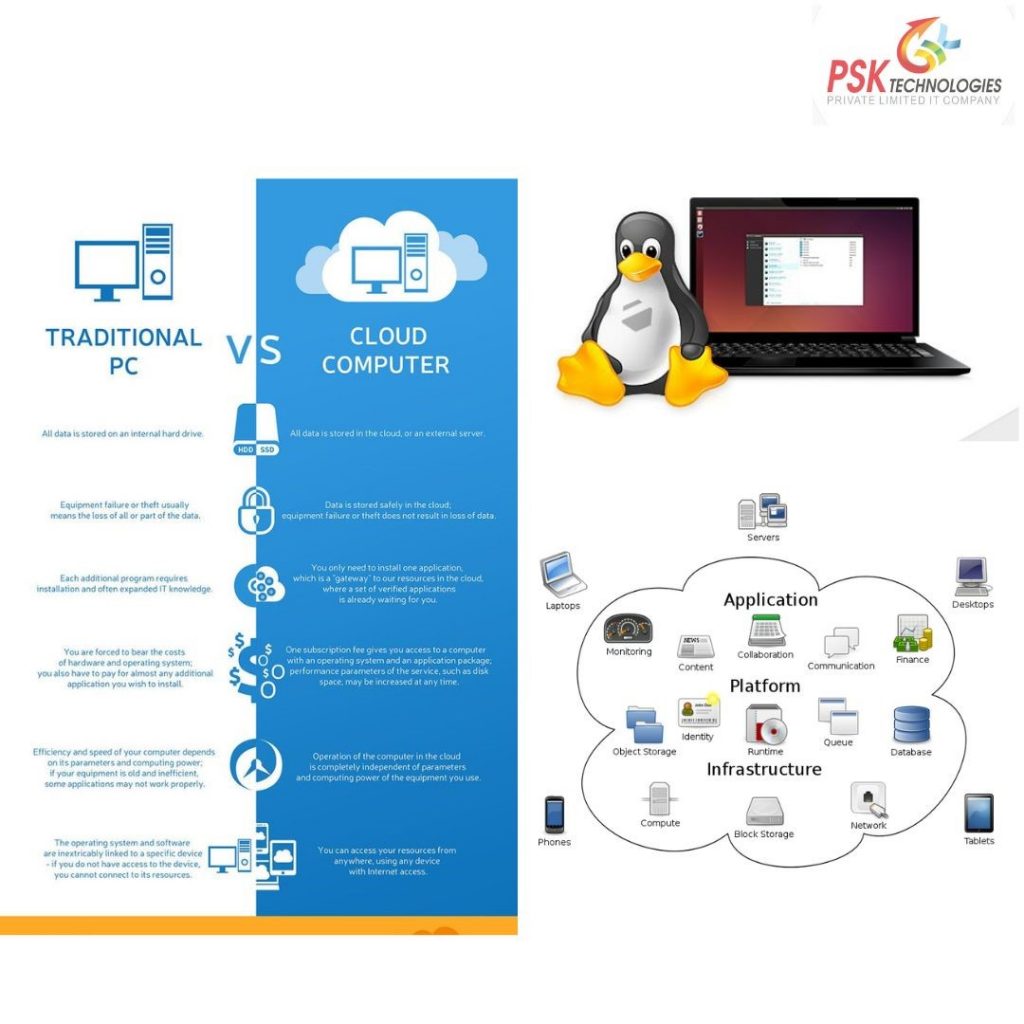What is Linux?
Linux is an operating system created in the early 1990s by Linus Torvalds and the free software foundation (FSF).
Most commonly used Linux by distribution
- Centos
- RedHat
3 .Ubuntu
What is Cloud Computing?
Cloud computing is a method of running applications and storing related data in the central computer system and providing access to the client.
Cloud computing is the delivery of different services through the internet. These resources include tools and applications like data storage, servers, databases, networking, and software.
Cloud services accelerate big data and business intelligence computing operations. Software modernization for microservices are all for an e-commerce software engine. It results in streamlining and simplifying business applications.
Importance of Linux in Cloud Computing
The server over which the client must be running the desired services will be having any one of many linux distributions as the operating system.
- It makes an easy and affordable process for all types and sizes
- Most internet users avail the services using a mobile phone, and cable providers.
- It is fast and free.
- It is important for servers.
- It is the biggest open source project and inspires many users to share their projects.
- It is open-projects, and improvements to happen also easier as an open source operating system.
Role of Linux in Cloud Computing
- Linux is the operating system that enables Cloud computing.
- Its modular, power efficient, reliable, open source, affordable, Scale to support critical workloads.
- It makes easier deployment process as contributors are adapting its capability to serve their needs.
- Linux serves everything from single-machine operating systems to multi-national networks.
- Linux is stable and more efficient and can configure for everyone with a modular capability that allows developers to implement most efficient combination of technology
- Linux is also security efficient which is a key attribute as it addresses any data concerns organizations may have of being in the public cloud. Open source allows a community to contribute security patching at pace and on demand.
- It has a great influence in the market, all the major public cloud providers amazon web services(AWS), Microsoft Azure, and Google cloud platform(GCP) use different versions of linux.
- Linux has grown into an essential technology recognizing entire industries.
- The developer committed time and resources to its development making linux an attractive and stable operating system for the cloud computing needs of companies, irrespective of their size.
- We expect the open-source development model proven successful by linux, will continue to empower developers around the world to create similar communities to solve technical challenges in the future. Whether its playing a fundamental role in an organization’s cloud strategy, securing and maintaining compliance, controlling it spent or optimizing your environment linux has a role to play
Advantages
- Improves flexibility
- Cost friendly
- Strong command-line support – makes it easy to manage Linux machines remotely even over mobile networks
- Auto-Scaling- It is easier to automate simple configurations in all configurations are done using config files & commands.
- Improves innovations
Uses
File Storage: The Cloud offers a variety of storage options, including files & emails.
File Sharing: The file can be shared with multiple users using the cloud at the same time.
Backup data: The cloud secures your data files.

